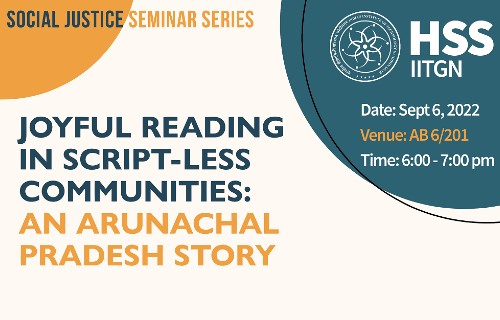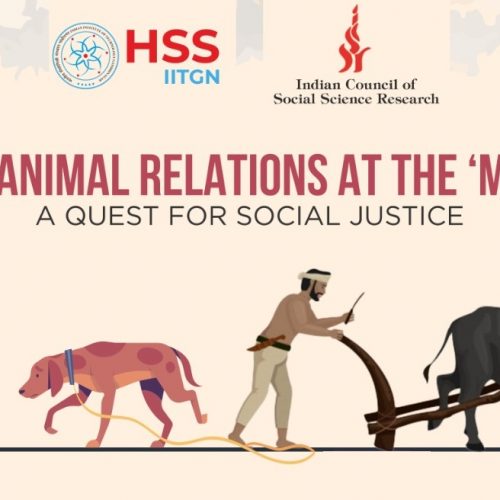PSYCHOLOGICAL RESPONSES TO RESERVATION- BASED DISCRIMINATION: A QUALITATIVE STUDY OF SOCIALLY MARGINALIZED YOUTH AT A PREMIER INDIAN UNIVERSITY
About the speaker: Anupam Joya Sharma is a doctoral student of Social Epidemiology at the Indian Institute of Technology, Gandhinagar. He is a physicist by training and a Social Epidemiologist by choice. Anupam’s recent works include the inquiry of psychosocial wellbeing and ageing of middle-aged to older queer adults in India, psychosocial effect of the COVID-19 pandemic across social groups in India, intimate partner violence in the aftermath of natural disasters in India, and effects of reservation-based discrimination in Indian institutions. His papers on these topics have been published in reputed journals such as PLoS ONE and Ageing International (Springer). Anupam also works as a Junior Research Fellow (JRF) on a project funded by the Department of Science and Technology (DST) on the impact of climate change on health and vulnerable communities in Gujarat. He is particularly experienced in conducting qualitative interviews, including on sensitive topics, in vulnerable populations such as sexual minorities, socially disadvantaged students, and older persons seeking reproductive interventions.
Abstract: Given the history of caste politics in India, it is not surprising that the socially marginalized students face discrimination, especially after the introduction of the reservation policy (affirmative action) in educational institutes. Our qualitative study, informed by Meyer’s Minority Stress model, analysed in-depth interviews with 30 undergraduate students, 3 faculty members, and 4 administrative officials at a premier Indian university to examine the psychological wellbeing of the reserved category students. We analysed how the discrimination processes contributed to students’ poor academic performance, low self-esteem, and weak motivation. Student group affiliations and university resources created a supportive environment for the socially marginalized, despite a small risk of stigmatization due to enrolment in a few campus support-programs. Moreover, there existed a palpable frustration among the socially privileged students, resulting in discriminatory attitudes against reserved categories but not “lower” caste. Our findings call for the attention of college administrators, policymakers, and the society at large to ensure that well-intended social justice policies are efficiently implemented, to deliver justice to the underprivileged students of India.




